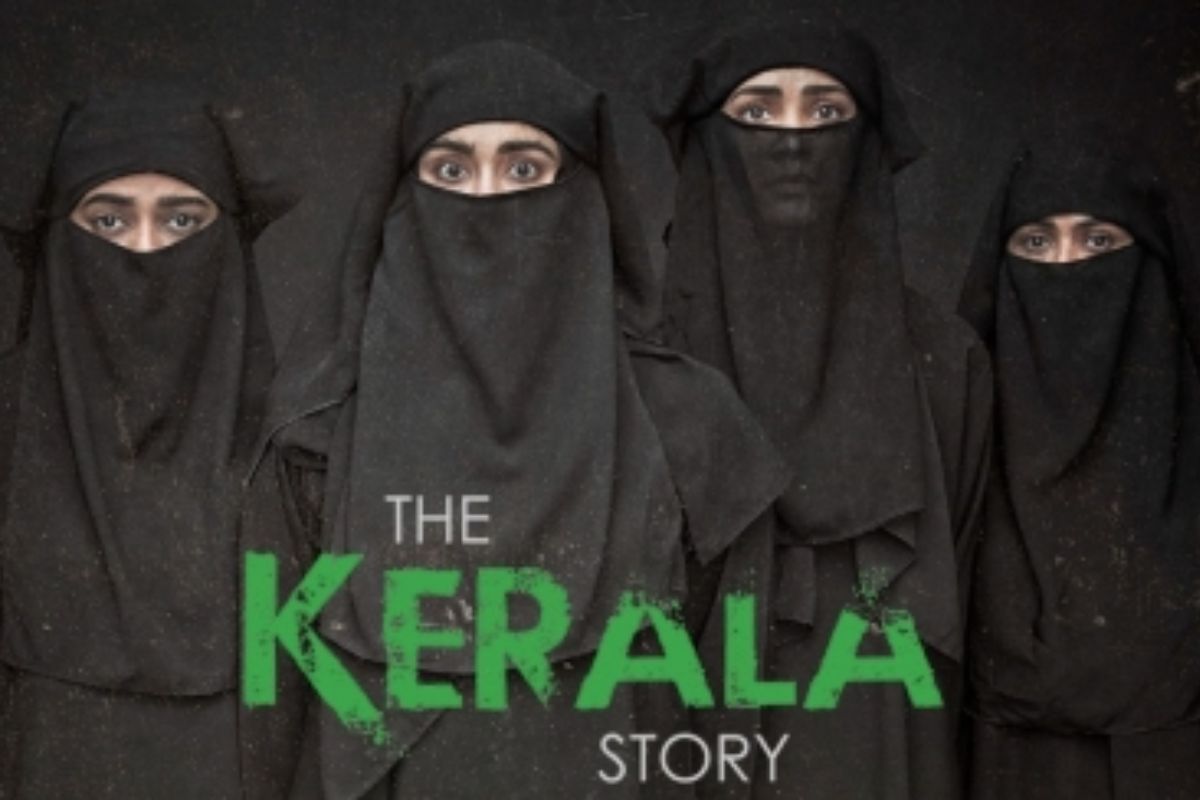Shiv Khera approaches SC, seeks publicity to NOTA as fictional candidate
A bench headed by Chief Justice DY Chandrachud issued the notice to the poll panel.
The apex court asked film producer to carry disclaimer that the film is a fictionalised version.

'The Kerala Story' [File Photo]
The Supreme Court on Thursday stayed the May 8 West Bengal government’s order banning the screening of the controversial film ‘The Kerala Story’ in the State and asked the film producer to carry a disclaimer that it (film) was fictional version of events with no authentic data backing its claim of 32,000 conversions to Islam of the women in the State.
Directing the filmmakers to include disclaimer in the film, a bench comprising Chief Justice D Y Chandrachud, Justice Pamidighantam Sri Narasimha and Justice J B Pardiwala ordered the Tamil Nadu government to provide adequate security to every cinema hall exhibiting the film and ensure the safety of the audience reaching cinema halls to see the film.
Lifting the ban on the screening of the film by the West Bengal government, the bench in its order said, “Prima facie we are of the view that the prohibition by West Bengal is not tenable on the basis of material before us. Thus, the order banning the film is stayed.”
Advertisement
With respect to film producers’ claim that there was de facto shadow ban on the screening of the film by the Tamil Nadu government, the bench ordered, “We direct that adequate security shall be provided to every cinema hall and requisite arrangement shall be made to ensure safety of movie goers. No express steps whether tacit etc. shall be taken to prevent screening of the film.”
Having dealt with West Bengal and Tamil Nadu, the bench asked the filmmakers to ensure that the movie carries a proper disclaimer stating that it is a fictionalised version and the same must be inserted in the start of the film by May 20, 2023.
Senior advocate Harish Salve, appearing for film producers, assured the bench that disclaimer will contain that the film is a fictionalised version of events and there is no authentic data to back up its claim of 32,000 conversion to Islam of women in Kerala. Salve said that the disclaimer shall be added by 5 pm on May 20.
During an earlier hearing on May 12, the top court had questioned the West Bengal government over banning the controversial film saying the movie is running in other parts of the country having the same demographic profile as West Bengal.
Chief Justice Chandrachud, heading the bench, had said, “The movie is being released all over the country, why should West Bengal ban the movie? West Bengal is not different from other parts of the Country. If it can run in other parts of the country, why should the State of West Bengal ban the film? It is running in other parts of the country which have a similar demographic profile as West Bengal.”
Rejecting the allegation of de facto shadow ban on the film, the Tamil Nadu government in its reply had told the top court that the film was released in 19 multiplexes who subsequently withdrew it in the wake of poor audience response.
“The exhibitors have themselves stopped the screening of the movie due to the poor audience response and the government cannot do anything to increase the audience patronage for the said film, except to provide security to the cinema theatres”, Tamil Nadu government had said in its reply.
On the petitions challenging the Central Board of Film Certification (CBFC) certification of the film, the bench posted the matter for hearing on July 18 stating that it would first have to see the movie for that.
Chief Justice Chandrachud said we will define the doctrine and we will lay down what is permissible and what is not. “We will see the film and decide,” CJI said.
Advertisement